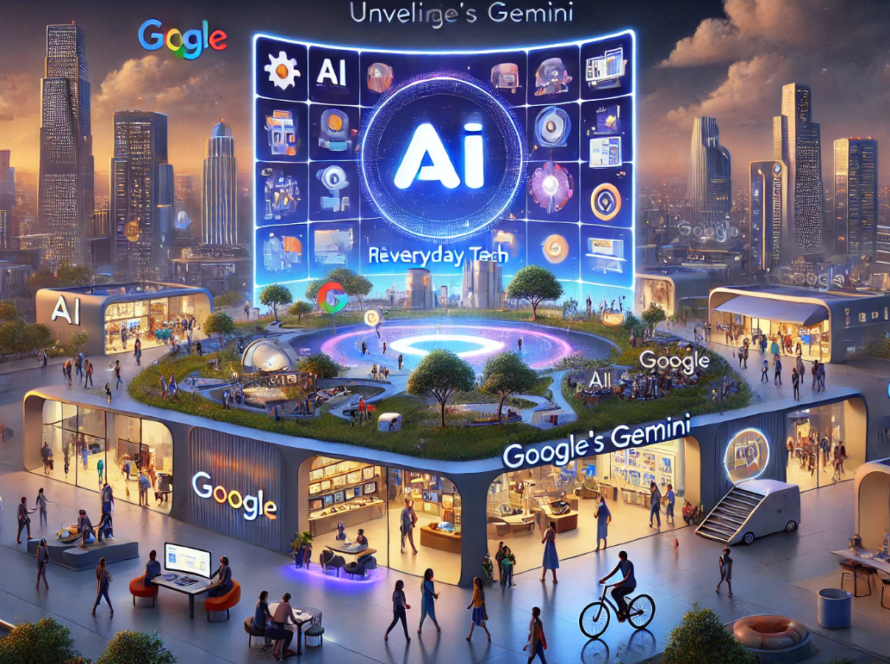Personalisation in marketing has taken a giant leap forward, thanks to artificial intelligence (AI). Our ability to understand and predict customer behaviour has never been more sophisticated. By harnessing AI, we can create tailored experiences that resonate deeply with individual customers, driving engagement and loyalty to new heights. This level of personalisation allows us to connect meaningfully with our audience, offering them what they want when they want it.
How AI Transforms Personalisation in Marketing
AI significantly enhances personalisation in marketing by enabling us to understand and cater to individual customer preferences on an unprecedented scale. Traditional marketing techniques often rely on broad segmentation and static data, which can miss the unique needs of individual customers. AI-driven personalisation, however, leverages dynamic data and sophisticated algorithms to deliver tailored experiences in real time.
One key way AI transforms personalisation is through predictive analytics. By analysing past customer behaviour, AI can anticipate future actions and preferences. This predictive power allows us to offer products, content, and services that customers are more likely to be interested in, increasing engagement and conversions.
Additionally, AI can process vast amounts of data from various sources, such as browsing history, purchase records, and social media interactions. This comprehensive data analysis helps create detailed customer profiles, enabling us to deliver highly targeted marketing messages. AI can adjust these profiles continuously, providing the most up-to-date personalisation possible.
Moreover, AI enables real-time personalisation, where the content and offers are adapted instantly based on user interactions. This dynamic adjustment keeps the customer experience relevant and engaging, boosting satisfaction and loyalty.

AI Techniques for Real-Time Personalisation
AI techniques for real-time personalisation are revolutionising how we interact with customers. These techniques allow us to adapt marketing messages and content on-the-fly, ensuring that each interaction is highly relevant and engaging.
Here are some common AI techniques used for real-time personalisation:
- Recommendation Engines: AI-powered recommendation engines analyse user behaviour and suggest products or content that align with their preferences. These engines use algorithms to process data like browsing history, purchase history, and even social media activity to make accurate suggestions in real-time.
- Dynamic Content: AI can adjust website content, such as banners, articles, and product displays, based on the user’s actions and preferences. For example, an online retailer can change the homepage layout to showcase products that a returning customer has shown interest in before.
- Personalised Emails: AI tools can create personalised email campaigns that adapt in real-time based on user behaviour. For instance, if a user abandons a shopping cart, an AI-driven email system can generate personalised follow-up emails with product recommendations or exclusive discounts to encourage completion of the purchase.
- Chatbots and Virtual Assistants: AI chatbots can provide instant, personalised assistance by recognising individual customers and tailoring their responses based on previous interactions and known preferences. These chatbots can handle queries, make product suggestions, and even complete transactions in real-time.
By employing these AI techniques, we can offer a seamless and personalised customer experience that meets individual needs and preferences instantaneously. This level of personalisation helps build stronger customer relationships and drives higher engagement and conversion rates.
Benefits of AI-Driven Personalisation Strategies
AI-driven personalisation strategies offer numerous benefits that can significantly enhance our marketing efforts. These strategies go beyond mere segmentation to deliver highly targeted and relevant experiences that resonate with individual customers.
Here are some key benefits:
- Increased Customer Engagement: Personalised content and recommendations grab the attention of customers, making them more likely to interact with our brand. When customers find content relevant to their interests, they are more likely to stay engaged.
- Higher Conversion Rates: By delivering personalised product suggestions and calls-to-action, we can guide customers through the buying journey more effectively. AI personalisation reduces friction and helps convert interest into actual purchases.
- Improved Customer Loyalty: Personalised experiences build stronger relationships with customers. When customers feel understood and valued, they are more likely to remain loyal to our brand and make repeat purchases.
- Efficient Marketing Spend: Targeted personalisation ensures that marketing efforts are directed towards the most receptive audience. This optimises the use of marketing budgets, reducing wastage and increasing ROI.
Additionally, AI-driven personalisation helps us stay ahead of competitors by continuously adapting to customer preferences. This adaptability ensures our marketing strategies are always relevant and impactful.
Implementing AI Personalisation: Best Practices
Successfully implementing AI personalisation involves several best practices to ensure effectiveness and maximise benefits. Here are some essential steps:
- Collect Comprehensive Data: Effective personalisation starts with collecting accurate and comprehensive data on customer behaviour, preferences, and interactions. Use various data sources such as purchase history, browsing activity, and social media engagement.
- Choose the Right AI Tools: Select AI tools that align with your personalisation goals. Consider tools that offer robust analytics, real-time processing, and seamless integration with existing systems.
- Focus on User Experience: Ensure that personalisation efforts enhance the user experience without being intrusive. Personalisation should feel natural and valuable to the customer, not overwhelming.
- Test and Optimise: Regularly test and optimise personalisation strategies to see what works best. Use A/B testing to compare different approaches and refine based on performance data.
- Maintain Data Privacy and Security: Always prioritise customer data privacy and security. Ensure compliance with data protection regulations and transparently communicate data usage policies to customers.
By following these best practices, we can effectively implement AI personalisation and create memorable, relevant experiences for our customers.
Conclusion
AI-powered personalisation transforms how we connect with customers by delivering tailored, relevant experiences that drive engagement and build loyalty. Implementing AI personalisation not only enhances customer satisfaction but also ensures efficient use of marketing resources and boosts overall performance. With AI, we can continuously adapt to changing customer preferences, keeping our strategies fresh and impactful.
At Not Just Marketing, we are dedicated to helping you harness the power of AI to take your personalised marketing strategies to the next level. Ready to create unforgettable customer experiences? Contact Not Just Marketing today to discover how our AI digital marketing solutions can revolutionise your marketing efforts.


